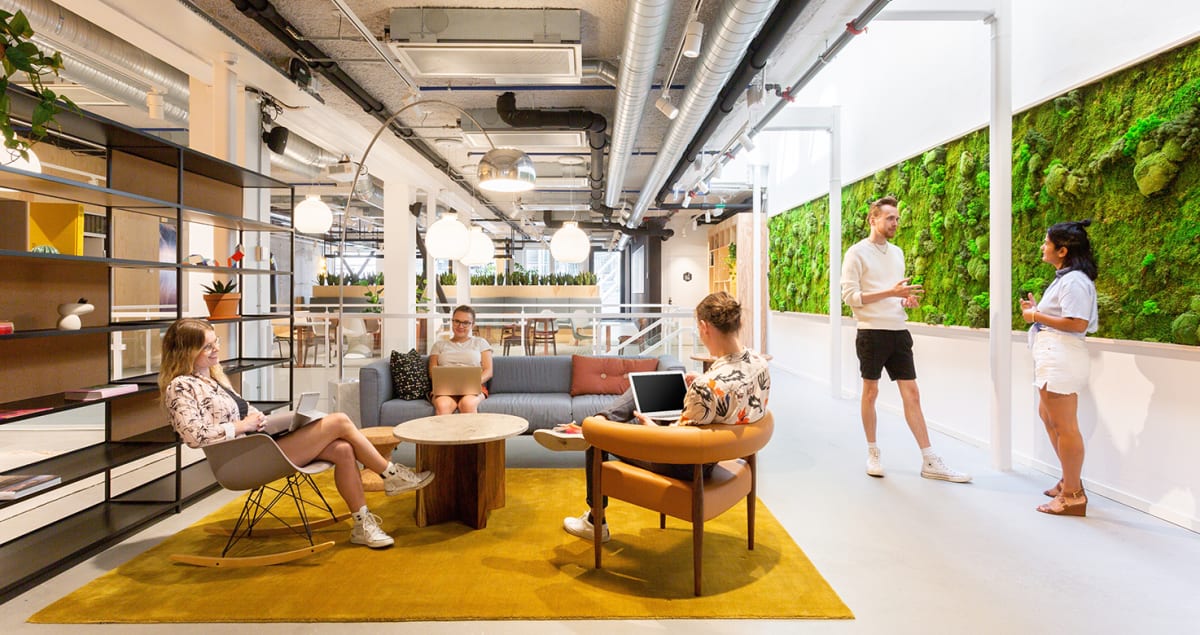As companies seek to balance achieving growth with embracing new workplace trends, flexspace is perfectly placed to bolster both goals.
The post-pandemic world will present a range of major challenges to businesses around the globe. From having to negotiate rapidly fluctuating marketplaces to deciding how and where staff will work, the demands on companies of all sizes will be considerable.
In light of the impact of Covid-19, a report by PWC found 82% of CFOs planned to cut spending on facilities and reduce general capital expenditure to help meet their cost-reduction objectives. One potential game-changer in the reduction of such costs is a switch to the use of flexible office space.
Even before Covid-19 struck, the use of flexspace was growing worldwide as forward-thinking businesses recognised its advantages – not only in terms of practicality for workers and benefits for the environment, but also the financial agility it offers.
A 2020 report produced by Savills revealed that 2.5 million square metres of office space had been leased to flexible office providers in 12 European countries. Meanwhile, companies as diverse as Google and Standard Chartered bank have made clear their commitment to a hybrid working future. Earlier this year, Standard Chartered signed a groundbreaking deal with IWG, giving its 95,000 employees access to 3,500 office spaces worldwide.
Here are three reasons why CFOs stand to benefit from embracing the hybrid model.
Reduced real-estate costs
Choosing flexspace means leasing only the space that’s required. Companies’ specific needs can be met, avoiding any wastage of square metres – or money.
Moreover, a workforce that grows or shrinks at short notice can be accommodated with ease. While periods of intense project work might demand a temporary scaling up of facilities, redeployment of staff could require the reverse. Flexspaces can rapidly reconcile such changes, offering quick, convenient and cost-effective solutions.
Ready-to-use facilities
The average cost of fitting out even a medium-spec office is just over £26 per square foot – but IWG’s portfolio of flexspaces come complete with furniture, tech facilities and fully equipped meeting rooms.
Utilities, too, are often factored into flexspace agreements, as are broadband and telecoms costs. This means CFOs can be sure of such expenses from the start. IWG’s flexspaces come with secure, business-grade technology and Wi-Fi, business address and mail handling, plus access to printers and admin support. Cleaning and security are also included, along with the services of a professional reception team.
Improved employee retention
Losing and then having to recruit staff has a major impact on a company’s bottom line. One study found that every time a business replaces a salaried employee, it costs an average of six to nine months’ salary.
Being able to retain staff is therefore a huge potential cost-saver, and one of the best ways of doing so is to ensure that your people are happy. Empowering employees to work in the way that’s best for them plays an ever-increasing role in employee engagement, and offering staff the option to base themselves at local flexspaces can help to meet that need.
Data from CBRE revealed that 69% of millennials would trade other work-package benefits for better workspace. Meanwhile, IWG’s own research shows that, even pre-pandemic, not being tied to a particular office or desk was so important to prospective employees that, when faced with two similar job offers, 80% of those surveyed would turn down the one that didn’t allow for flexible working.
It stands to reason, then, that investing in modern flexspace will be key in helping to boost employee satisfaction and reduce costly turnover.
Future outlook
As we enter a new work era, flexspace offers CFOs potential savings on property, opportunities to reduce waste and a new way to engage with workers’ developing tastes and preferences.
“In our experience, businesses that opt for a fully equipped workspace, with everything from furniture to super-fast Wi-Fi provided, often see an immediate halving of their property costs, releasing capital to invest in generating stakeholder value,” says IWG’s Founder and CEO Mark Dixon. “Businesses have realised that a hybrid model not only means happier and more engaged employees, but also a significant saving for the bottom line.”
Find out how we could help your business cut its office costs.






